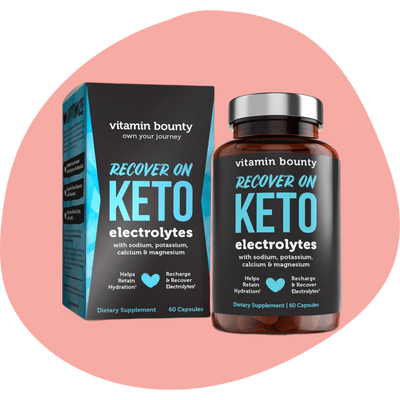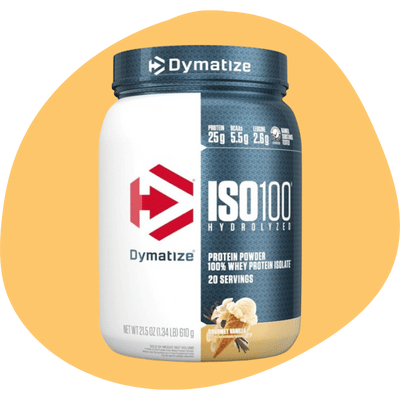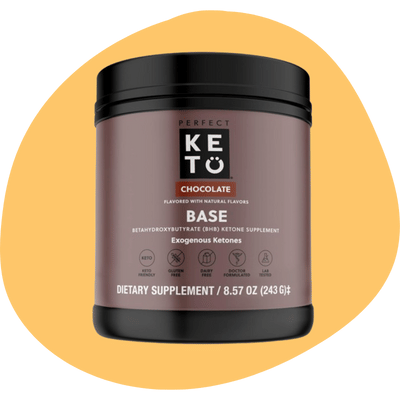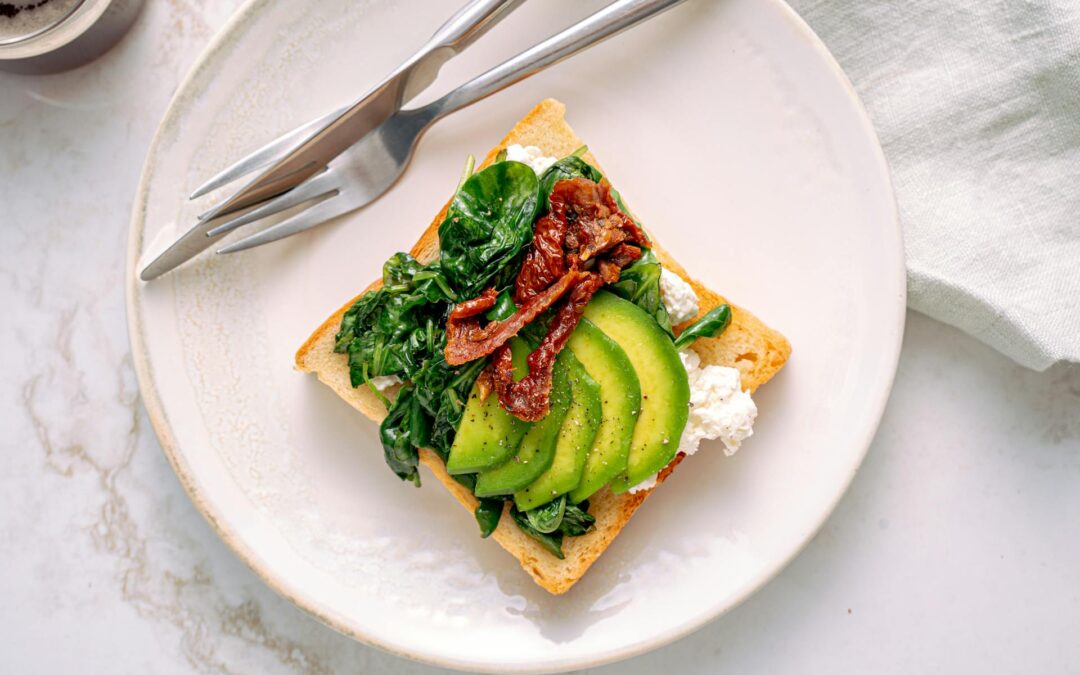Looking for an effective way to balance low carb eating with intermittent fasting? This 7-day low carb and intermittent fasting meal plan is designed to boost weight loss, improve energy levels, and simplify your health goals. Combining the science of low carb diets with the power of fasting can supercharge your wellness journey.
Introduction to the 7-Day Low Carb and Intermittent Fasting Meal Plan
What is a Low Carb Diet?
A low carb diet focuses on reducing carbohydrate intake, replacing it with protein and healthy fats. This encourages your body to burn fat for energy, leading to weight loss and better metabolic health. (1)
Understanding Intermittent Fasting (IF)
Intermittent fasting is not about what you eat but when you eat. It involves alternating between eating and fasting windows to optimize fat burning and insulin sensitivity. (2)
Why Combine Low Carb and Intermittent Fasting?
By combining these methods, you’ll experience:
- Improved fat metabolism
- Stabilized blood sugar levels
- Reduced hunger cravings
Benefits of a Structured Plan
- Saves time with pre-planned meals.
- It keeps you accountable.
- Ensures nutritional balance.
How to Get Started with Low Carb Intermittent Fasting
Calculate Your Macronutrient Needs
Your macronutrient ratio should focus on low carbs, moderate protein, and healthy fats. Use online calculators to determine what works for your goals.
Choose Your Fasting Window
Some popular schedules include: (3)
- 16:8: Fast for 16 hours, eat within an 8-hour window.
- 18:6: An extended fasting window with a shorter eating period.
- OMAD (One Meal a Day): A single meal per day.
Start with the 16:8 method if you’re a beginner.
Foods to Include and Avoid
Include:
- Healthy fats (avocados, olive oil, nuts)
- High-quality proteins (chicken, fish, eggs)
- Low-carb vegetables (leafy greens, broccoli, zucchini)
Avoid:
- Sugary foods (sodas, candies)
- Starches (bread, pasta, rice)
- Processed snacks
Preparing Your Body for the Transition
Ease into fasting and low carb eating by gradually cutting carbs and extending your fasting periods. Drink plenty of water and consume electrolytes to reduce symptoms like fatigue or headaches.
The Science Behind Low Carb and Intermittent Fasting
How Low Carb Diets Affect Metabolism
- Low carb diets encourage your body to enter ketosis, a state where fat becomes your primary energy source. (4)
The Role of Insulin Sensitivity
- Both low carb eating and fasting improve insulin sensitivity, making it easier to lose fat.
Hormonal Benefits
- Fasting boosts human growth hormone (HGH) levels, enhancing fat-burning and muscle preservation.
Essential Tips for Success
- Manage Cravings: Replace snacks with low carb options like cheese sticks or nuts.
- Hydrate Properly: Electrolyte-rich drinks or mineral supplements can prevent dehydration.
- Prep in Advance: Make meals ahead of time to stay on track.
- Track Your Progress: Use apps to log meals, fasting hours, and physical changes.
7-Day Low Carb and Intermittent Fasting Meal Plan Overview
This meal plan combines fasting schedules and nutrient-rich meals to maximize fat burning and sustain energy. Stick to your fasting windows, and prioritize whole, unprocessed foods. (5)
Day 1: Easing Into the Plan
- Breakfast (after fasting window): Keto smoothie bowl with spinach, avocado, and unsweetened almond milk.
- Lunch: Grilled chicken salad with olive oil dressing.
- Dinner: Pan-seared salmon with steamed asparagus.
Day 2: Low Carb with 16:8 Fasting
- Brunch: Scrambled eggs with spinach and avocado.
- Snack: Handful of almonds.
- Dinner: Zucchini noodles tossed with pesto and shrimp.
Day 3: Adding More Fiber and Healthy Fats
- Brunch: Chia seed pudding with coconut milk.
- Snack: Cheese sticks.
- Dinner: Grilled pork chops with cauliflower mash.
Day 4: Midweek Energy Boost
- Brunch: Avocado egg bake with herbs.
- Snack: Greek yogurt with fresh berries.
- Dinner: Beef stir-fry with bell peppers and sesame oil.
Day 5: Powering Through the Weekend
- Brunch: Smoked salmon wraps with cream cheese and cucumber slices.
- Snack: Celery sticks topped with peanut butter.
- Dinner: Grilled chicken skewers served with roasted vegetables.
Day 6: Experimenting with OMAD
- Dinner: Large salad with grilled chicken, hard-boiled eggs, nuts, and olive oil dressing.
Day 7: Reflecting and Reassessing Goals
- Brunch: Cauliflower rice stir-fried with veggies and scrambled eggs.
- Snack: 1-2 squares of dark chocolate (85% or higher).
- Dinner: Grilled steak served with roasted broccoli.
Common Challenges and How to Overcome Them
Starting a low carb intermittent fasting meal plan can be exciting, but it comes with its share of challenges. Whether you’re dealing with initial discomforts or long-term consistency, knowing how to navigate these hurdles can make all the difference. Let’s explore the most common challenges and actionable strategies to overcome them.
Coping with Hunger During Fasting
When you first begin intermittent fasting, managing hunger can feel overwhelming, especially if you’re used to frequent meals or snacks. Your body needs time to adapt to extended periods without food.
How to manage hunger:
- Stay hydrated: Thirst is often mistaken for hunger. Drink water, herbal tea, or black coffee during fasting hours.
- Consume fiber and protein-rich meals: These foods increase satiety and keep you full longer during your eating window.
- Try appetite suppressants: Natural options like green tea extract or apple cider vinegar can help curb cravings.
- Gradually increase fasting hours: Start with a shorter fasting window, like 12:12, and slowly work up to 16:8 or 18:6.
Dealing with Fatigue and Low Energy
In the initial stages of a low carb intermittent fasting meal plan, your body transitions from using carbs as fuel to burning fat. This process, often referred to as the “keto flu,” can cause fatigue, brain fog, and irritability.
How to combat fatigue:
- Prioritize electrolytes: Sodium, potassium, and magnesium are critical for energy production and preventing fatigue.
- Get enough calories during your eating window: Ensure your meals are nutrient-dense and balanced.
- Rest when needed: Allow your body time to adjust to the changes. Light exercise, like walking or yoga, can also help improve energy levels.
- Incorporate MCT oil or coconut oil: These provide quick energy without disrupting ketosis.
Overcoming Carb Cravings
Cravings for carbs are one of the most common challenges when transitioning to a low carb diet. These cravings are often due to the body’s reliance on glucose for energy or psychological habits tied to eating carb-heavy foods.
How to curb carb cravings:
- Eat healthy fats: Foods like avocados, nuts, and olive oil provide satisfaction and help reduce cravings.
- Distract yourself: When cravings hit, engage in an activity such as walking, journaling, or drinking a glass of water.
- Practice mindful eating: Focus on enjoying your meals and identifying true hunger versus emotional eating.
- Use low-carb alternatives: Swap traditional pasta for zucchini noodles or cauliflower rice to satisfy cravings without breaking your diet.
Weight Loss Plateaus
Hitting a plateau where the scale won’t budge is frustrating but common. This usually happens because your body adapts to changes in diet and metabolism.
How to break through a plateau:
- Reassess your carb intake: Even minor increases in carbs can stall progress. Keep track of your daily intake to ensure it stays low.
- Incorporate exercise: Add resistance training or high-intensity interval training (HIIT) to boost fat-burning and metabolism.
- Change your fasting routine: Switch to a longer fasting window (e.g., 18:6 or OMAD) to challenge your body.
- Check hidden carbs: Processed foods, sauces, and dressings often contain sneaky carbs that could affect your progress.
Digestive Issues
Switching to a low carb diet can sometimes cause digestive problems, such as constipation or bloating, due to a reduction in dietary fiber or changes in gut bacteria.
How to improve digestion:
- Increase fiber intake: Incorporate low-carb fiber sources like chia seeds, flaxseeds, and leafy greens.
- Hydrate adequately: Water aids in digestion and prevents constipation.
- Take probiotics: Fermented foods or probiotic supplements can help balance your gut microbiome.
- Ease into the diet: Gradually reduce carbs to give your digestive system time to adjust.
Balancing Workouts and Fasting
Fasting while maintaining an active lifestyle can be tricky, especially if you’re engaging in intense workouts. Energy demands may conflict with fasting hours.
How to balance fitness with fasting:
- Schedule workouts during your eating window: This ensures you have energy and can refuel post-workout.
- Choose low-intensity workouts for fasting periods: Activities like yoga or walking are more manageable while fasting.
- Fuel properly after exercise: Focus on high-protein, low-carb meals to aid muscle recovery.
Supplements to Enhance Your Results
When following a low carb intermittent fasting meal plan, the right supplements can make a significant difference in your results. They help fill nutritional gaps, support your body during fasting, and optimize overall performance. Below, we dive into the most effective supplements to complement your diet and fasting routine.
Electrolytes: The Fasting Essential
Fasting can lead to an electrolyte imbalance, especially as your body depletes glycogen stores and flushes out water. Electrolytes such as sodium, potassium, and magnesium are critical for maintaining hydration, nerve function, and muscle health.
Why are electrolytes important?
- Sodium prevents fatigue and dizziness by maintaining fluid balance.
- Potassium supports muscle contractions and heart health.
- Magnesium helps combat muscle cramps and promotes restful sleep.
How to take them:
- Use electrolyte powders or tablets dissolved in water.
- Opt for natural sources like Himalayan salt, avocados (for potassium), and leafy greens.
Vitamin Bounty Recover On Keto Electrolytes

Boost your health and performance with Vitamin Bounty Recover On Keto Electrolytes, the perfect supplement for anyone following a ketogenic or low-carb lifestyle. This premium formula is specifically designed to replenish essential nutrients often depleted during ketosis, helping you stay energized, hydrated, and balanced.
Key Benefits
- Electrolyte Support: Features a well-rounded blend of calcium, magnesium, sodium, and potassium to maintain optimal hydration and muscle function.
- Enhanced Immunity: Infused with vitamin C, it supports immune health and combats oxidative stress.
- Keto-Friendly: Zero carbs or sugars, making it ideal for maintaining ketosis.
- Relieves Keto Flu Symptoms: Helps combat fatigue, headaches, and muscle cramps commonly experienced during the keto transition.

Omega-3 Fatty Acids
Omega-3s, found in fish oil or algae-based supplements, are well-known for their anti-inflammatory properties. These fatty acids help balance the omega-6 to omega-3 ratio, which is often disrupted by processed foods.
Benefits of Omega-3s:
- Reduce inflammation, especially beneficial for those transitioning to a low carb diet.
- Improve brain function and heart health.
- Support hormonal balance during fasting periods.
Dosage:
- Take 1,000–2,000 mg of high-quality fish oil daily.
OVEGA-3 Plant-Based Omega-3 from Algal Oil

Get your daily dose of heart-healthy Omega-3s with OVEGA-3 Plant-Based Omega-3, a sustainable, vegan-friendly alternative to fish oil. Derived from pure algal oil, this supplement provides essential EPA and DHA without any fishy aftertaste, making it ideal for vegetarians, vegans, and anyone looking for a clean, plant-based source of Omega-3s.
Key Benefits
- Plant-Based Omega-3: Supplies 500mg of EPA and DHA per serving to support heart, brain, and eye health.
- Sustainable Source: Made from algae, offering an eco-friendly and renewable Omega-3 option.
- No Fishy Aftertaste: A clean, odor-free alternative to traditional fish oil.
- Supports Wellness: Helps reduce inflammation and promote overall well-being.

Multivitamins for Nutritional Gaps
While a well-planned low carb intermittent fasting meal plan is nutrient-dense, it might lack certain vitamins, especially if you cut out entire food groups. A daily multivitamin ensures you get essential nutrients.
Key vitamins to look for:
- B Vitamins: Aid in energy production and reduce fatigue.
- Vitamin D: Supports bone health, immune function, and mood stability.
- Zinc and Selenium: Boost immune function and support metabolic health.
NUTRAMIN Daily Vegan Keto Multivitamin Gummies

The NUTRAMIN Daily Vegan Keto Multivitamin Gummies are a specially crafted supplement designed to meet the nutritional needs of individuals on a low-carb or ketogenic diet. These delicious gummies provide a comprehensive blend of essential vitamins and minerals to fill common nutrient gaps, ensuring optimal health and vitality.
Key Benefits
- Keto-Friendly: Formulated without added sugars, making it perfect for low-carb and keto lifestyles.
- Plant-Based: 100% vegan, gluten-free, and dairy-free, suitable for various dietary preferences.
- Complete Nutrition: Packed with vital nutrients like Vitamins A, C, D, E, and B-complex, along with minerals like zinc and magnesium to support immunity, energy, and overall well-being.
- Convenient & Tasty: Soft, easy-to-chew gummies with a pleasant natural flavor, making daily supplementation enjoyable.

MCT Oil: A Quick Energy Booster
MCT (medium-chain triglycerides) oil, derived from coconut oil, is a staple for low carb and ketogenic diets. It provides a quick energy source that doesn’t spike blood sugar levels.
How MCT oil helps:
- Enhances ketone production, supporting fat metabolism.
- Boosts mental clarity and focus, especially during fasting hours.
- It suppresses appetite, making it easier to stick to your fasting schedule.
Usage Tips:
- Add MCT oil to coffee or smoothies for a satiating boost.
- Start with 1 teaspoon and gradually increase to avoid digestive discomfort.
Kiss My Keto MCT Oil C8 – Pure Keto Fuel

Fuel your keto lifestyle with Kiss My Keto MCT Oil C8, a premium, pure C8 caprylic acid MCT oil sourced from 100% coconuts. Known as the “high-octane fuel” of MCT oils, C8 is quickly converted into ketones, delivering sustained energy, enhanced mental focus, and appetite control. This 32 oz bottle includes a convenient pump for easy, mess-free use.
Key Benefits
- Pure C8 MCT Oil: Features 100% caprylic acid for fast and efficient ketone production.
- Keto Brain Fuel: Boosts mental clarity and focus without the carb crash.
- Energy and Endurance: Provides a quick, clean energy source for workouts or busy days.
- Appetite Control: Promotes satiety to support weight management on a ketogenic diet.
- Versatile Usage: Add to coffee, smoothies, salads, or any low-carb recipes.

Probiotics for Digestive Health
Digestive health is crucial when transitioning to a low carb intermittent fasting meal plan. Probiotics can help maintain a healthy gut microbiome, improve digestion, and reduce bloating.
Benefits of probiotics:
- Support nutrient absorption.
- Reduce digestive discomfort, especially when increasing protein and fat intake.
- Enhance immune function.
Sources:
- Probiotic capsules or powders.
- Fermented foods like kimchi, sauerkraut, and unsweetened yogurt.
Probiotics by Ancient Nutrition – SBO Probiotics Ultimate

Support your gut and immune health with Ancient Nutrition SBO Probiotics Ultimate. Packed with 50 billion CFUs* per serving, this powerful blend features soil-based organisms (SBOs) and a unique mix of ancient superfoods to promote optimal digestion, immunity, and overall wellness. With 60 gluten-free capsules, it’s designed to fit seamlessly into your daily routine.
Key Benefits
- Digestive Support: Helps balance gut bacteria for improved digestion and reduced bloating.
- Immune Boost: Fortifies your body’s natural defenses by supporting a healthy microbiome.
- 50 Billion CFUs Per Serving: Delivers a potent dose of SBO probiotics to maximize effectiveness.
- Ancient Superfoods Blend: Includes fermented herbs and botanicals for enhanced health benefits.
- Gluten-Free and Clean: Free from GMOs, gluten, and artificial ingredients, making it suitable for various dietary needs.

Protein Powders for Fasting-Friendly Meals
Meeting your protein needs is essential for a low carb diet. Protein powders can be a convenient option, especially if you’re short on time or find it hard to eat enough protein.
Best types of protein powders for low carb diets:
- Whey Isolate: High in protein and low in carbs.
- Collagen Peptides: Supports skin, hair, and joint health.
- Plant-Based Protein: A good option for those avoiding animal products.
Use tips:
- Add protein powder to smoothies, coffee, or low carb recipes.
- Ensure the product has minimal sugar or artificial sweeteners.
Dymatize ISO100 Hydrolyzed Protein Powder – Gourmet Vanilla

Elevate your fitness goals with Dymatize ISO100 Hydrolyzed Protein Powder, a premium-quality whey isolate designed for fast absorption and easy digestion. With 25g of protein and 5.5g of BCAAs per serving, this gluten-free protein powder supports muscle recovery, strength building, and sustained energy—all with a rich and creamy gourmet vanilla flavor.
Key Benefits
- 100% Whey Isolate: Hydrolyzed for ultra-fast absorption to fuel muscles quickly.
- 25g of Protein Per Serving: Provides high-quality protein to support muscle growth and repair.
- 5.5g of BCAAs: Includes leucine, isoleucine, and valine for enhanced recovery and performance.
- Easy to Digest: Gentle on the stomach, making it ideal for post-workout recovery or daily protein needs.
- Gluten-Free: Perfect for those with dietary sensitivities.

Natural Appetite Suppressants
Fasting can be challenging, especially during the adjustment phase. Natural appetite suppressants can help you manage hunger without compromising your low carb goals.
Recommended options:
- Green Tea Extract: Contains catechins that boost metabolism and reduce appetite.
- Apple Cider Vinegar: Helps control blood sugar levels and reduces hunger.
- Glucomannan: A fiber supplement that expands in your stomach, promoting fullness.
How to take them:
- Green tea extract: 300–400 mg daily.
- Apple cider vinegar: 1–2 tablespoons diluted in water before meals.
- Glucomannan: 1 gram with water 30 minutes before eating.
Exogenous Ketones for Ketosis Boost
For those combining a low carb diet with intermittent fasting, exogenous ketones can help accelerate ketosis. These supplements mimic the ketones your body produces naturally during fat metabolism.
Benefits of exogenous ketones:
- Provide quick energy without breaking your fast.
- Reduce the symptoms of “keto flu” when starting a low carb lifestyle.
- Enhance mental clarity and focus during fasting periods.
Keto Exogenous Ketones Powder

Boost your keto journey with Keto Exogenous Ketones Powder, a premium blend of BHB salts designed to support ketosis, enhance fasting, and provide clean energy without caffeine. Packed with electrolytes for optimal hydration, this powder is perfect for staying energized and focused while maintaining a low-carb lifestyle.
Key Benefits
- BHB Salts for Ketosis: Provides exogenous ketones to help your body achieve and sustain ketosis.
- Fasting Support: Reduces hunger and enhances mental clarity during fasting periods.
- Electrolytes for Hydration: Replenishes essential minerals like sodium, magnesium, and potassium for balanced hydration and muscle function.
- Caffeine-Free Energy: Delivers steady, clean energy without the jitters or crash of stimulants.
- Keto-Friendly: Zero carbs or sugars, making it ideal for ketogenic and low-carb diets.

FAQs About Low Carb and Intermittent Fasting
Can I exercise while fasting?
Yes! Low-intensity exercises like walking or yoga are great during fasting.
How much weight can I lose in a week?
Results vary, but combining low carb eating and fasting can lead to noticeable changes in the first week.
Is intermittent fasting safe for everyone?
Most people can do it, but consult your doctor if you have a medical condition.
What happens if I cheat on the plan?
One off day won’t ruin your progress. Get back on track at your next meal.
Do I need to count calories?
Not necessarily, but tracking intake helps ensure you stay within your carb limit.
The Bottom Line
Adopting a 7-day low carb and intermittent fasting meal plan can be a game-changer for your health and wellness. By combining the fat-burning benefits of a low carb diet with the metabolic advantages of intermittent fasting, this approach simplifies weight management, boosts energy levels, and improves overall well-being.
This plan is more than a diet; it’s a lifestyle designed to help you regain control of your eating habits, break free from sugar cravings, and tap into your body’s natural ability to burn fat. From calculating your macronutrient needs to overcoming challenges like carb cravings and social situations, every step of the journey has been outlined to set you up for success.
As you move forward, remember that consistency is key. It’s normal to face setbacks or challenges, but with determination and flexibility, you can achieve sustainable results. Use the meal ideas, fasting schedules, and strategies shared here to create a routine that works for you.
Above all, listen to your body. Each person’s journey is unique, and it’s important to adjust your plan based on your needs and progress. With time, patience, and the right tools, this meal plan can help you transform your approach to eating and living for the better.
Are you ready to start your journey toward a healthier, more energized version of yourself? Let this plan be your guide to sustainable health and a lifestyle you’ll love.







0 Comments